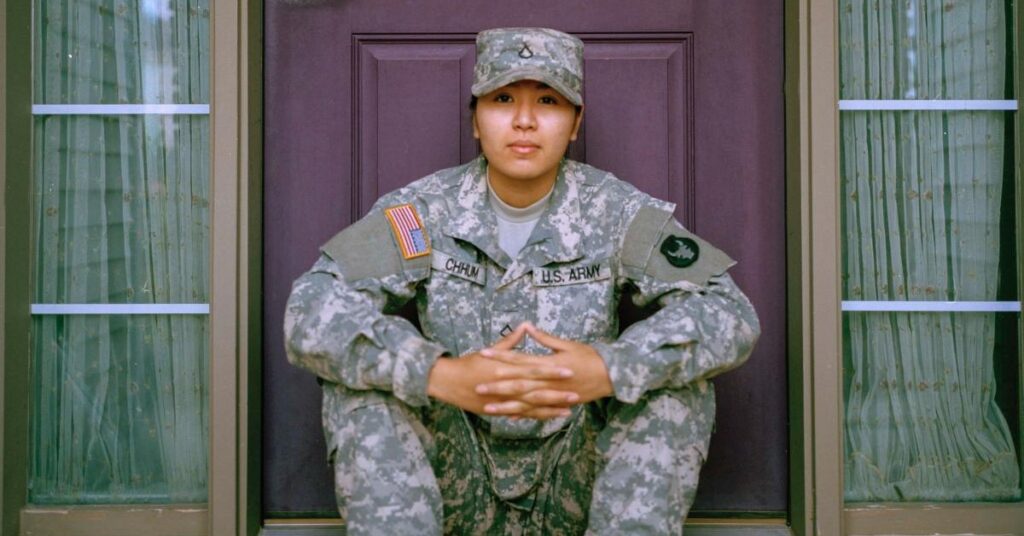
How to Become a Licensed Mental Health Social Worker
We explain the steps necessary to become a licensed mental [...]

If you're passionate about improving service members' quality of life and well-being, consider pursuing a career as a military social worker. You can enter the field by attaining a bachelor's degree, master's degree, and licensure. This article details the steps you'll need to take to work in this crucial advocacy role.
Active duty service members and veterans face emotional and physical health challenges unique to military life. Combat veterans, for instance, too often return home with significant emotional and physical trauma. Research suggests that 14 to 16 percent of U.S. service members deployed to Afghanistan and Iraq have PTSD or depression, for example.
Returning veterans face various debilitating mental health issues, including post-traumatic stress disorder (PTSD), depression, and suicidal ideation. Many must cope with permanent bodily injury. Some turn to substance abuse to relieve their anxiety.
These trends drive the United States’ tremendous need for military social workers. Social workers are vital in providing treatment to service members and establishing support for veterans and their families to reconnect with their communities.
Equipped with a bachelor’s degree, a Master of Social Work (MSW), credentials, and licensure, you can provide this comprehensive care for military personnel as a military social worker.
This article details how to become a military social worker by discussing the following topics:
While the steps toward licensure vary at the outset of any social worker’s education and training, military social workers refine their path as they specialize. It’s important to note that even if you start your career in military social work, you don’t have to stay in the same area of specialization forever. Instead, social workers can advance their careers with leadership training to obtain other licenses.
If you’ve decided on military social work as your career path, you can follow these steps for education, credentials, and licensing:
You’ll start your journey by obtaining a bachelor’s degree. While a Bachelor of Social Work (BSW) may be the optimal choice, many other undergrads pivot to social work after graduation. If you acquire your bachelor’s degree in a subject other than social work, you’ll still be eligible to pursue your MSW and social work license. It helps if your undergraduate major was in a related field like psychology or sociology.
A BSW, bachelor’s in psychology, or bachelor’s in sociology allows you access to entry-level social service positions throughout your state. These entry-level jobs enable you to gain experience in different specializations to find your calling. These roles also potentially provide superb credentials and references for your master’s program application process.
Many paths lead social workers to a military specialization. For example, students can enroll in an accredited Master of Social Work (MSW) program with a concentration in military social work. Some schools provide direct coursework and training for this population. Other programs offer unique collaborations with veteran hospitals or community agencies, where you can develop your expertise around the needs of military personnel through hands-on experience.
Enrolling in a Master of Social Work program does not preclude you from continuing to work. Many MSW students opt flexible part-time programs, many of which are available online, to continue employment as they study. In addition, applicants with a BSW may be able to find programs with advanced standing tracks that reduce the amount of time required to earn the degree.
Choosing your MSW program is personal. While geography, cost, and reputation are likely factors, invest in a program that will pay back the highest dividends. Consider not just your potential salary but what else a university offers regarding flexibility, lifestyle, affordability, and c urriculum.
MSW students interested in military social work may focus their studies on clinical practice, developing counseling and psychotherapeutic treatment skills. Because the cornerstone of MSW education is fieldwork experience, many MSW students choose a field placement that provides work experience with military personnel. In addition, students pursue clinical practice to build expertise with this population through dedicated fieldwork placements with military agencies or hospitals.
After receiving your MSW, you must become licensed to work in your state. First, you must qualify for residency requirements, which vary from state to state. You must earn a graduate degree and accrue at least two years of work experience or 3,000 hours of supervised clinical experience. You will then be eligible to take the Association of Social Work Boards (ASWB) Clinical or Advanced Generalist Level exam.
Social workers can acquire multiple levels of licensure, with each state offering different categories.
Social work is an ever-changing field. Stay informed of these changes to provide the best possible patient care. In addition, your state will require you to meet continuing education requirements to keep your license active. Most states require social workers to complete these credits every two years.
With your MSW, you can apply for a Military Service Members, Veterans & Their Families Advanced Social Worker (MVF-ASW) license immediately. However, in addition to the MSW, you will need many hours of clinical social work experience under the supervision of a board-approved supervisor. Once you complete those hours, you must pass the Association of Social Work Boards (ASWB) Master’s Level exam.
You can contact the Board of Social Work in your state to find out which licensing certificates you qualify for in your career as a military social worker.
| University and Program Name | Learn More |
|
Merrimack College:
Master of Science in Clinical Mental Health Counseling
|
|
|
Virginia Commonwealth University:
Online Master of Social Work
|
Social workers provide professional treatment and offer assistance to military personnel for a variety of problems and mental health disorders, such as:
The demand for knowledgeable military social workers is increasing. Social workers, in general, have a projected job growth of nine percent from 2021 to 2031, according to the Bureau of Labor Statistics (BLS).
A military social worker’s salary varies depending on experience and location. For example, you can start with a bachelor’s degree at an entry-level job and earn a median wage of about $52,000 per year. But an MSW can quickly pay for itself with increased earning potential.
Glassdoor provides several average social worker salaries you can earn with an MSW based on location. Here are the median annual wages for social workers in a few major U.S. cities:
The U.S. Department of Veteran Affairs is one of the largest employers of military social workers. It also operates one of the most extensive clinical training programs for social workers through a clinical traineeship program.
Affiliated with over 100 graduate schools, the U.S. Department of Veteran Affairs trains nearly 1,000 master’s degree-holding social workers yearly for careers devoted to military workers and their families. To learn more about the work it does and find opportunities to train, visit the VA website.
(Last Updated on February 26, 2024)
Questions or feedback? Email editor@noodle.com

We explain the steps necessary to become a licensed mental [...]

Domestic violence call centers in the US field 20,000 calls [...]

Thinking about a career in social work? Taking a volunteer [...]

Many Doctor of Social Work (DSW) programs offer full-time, part-time, [...]

If you hope to effect change in policy and service [...]
Categorized as: Counseling, Social Work, Social Work & Counseling & Psychology